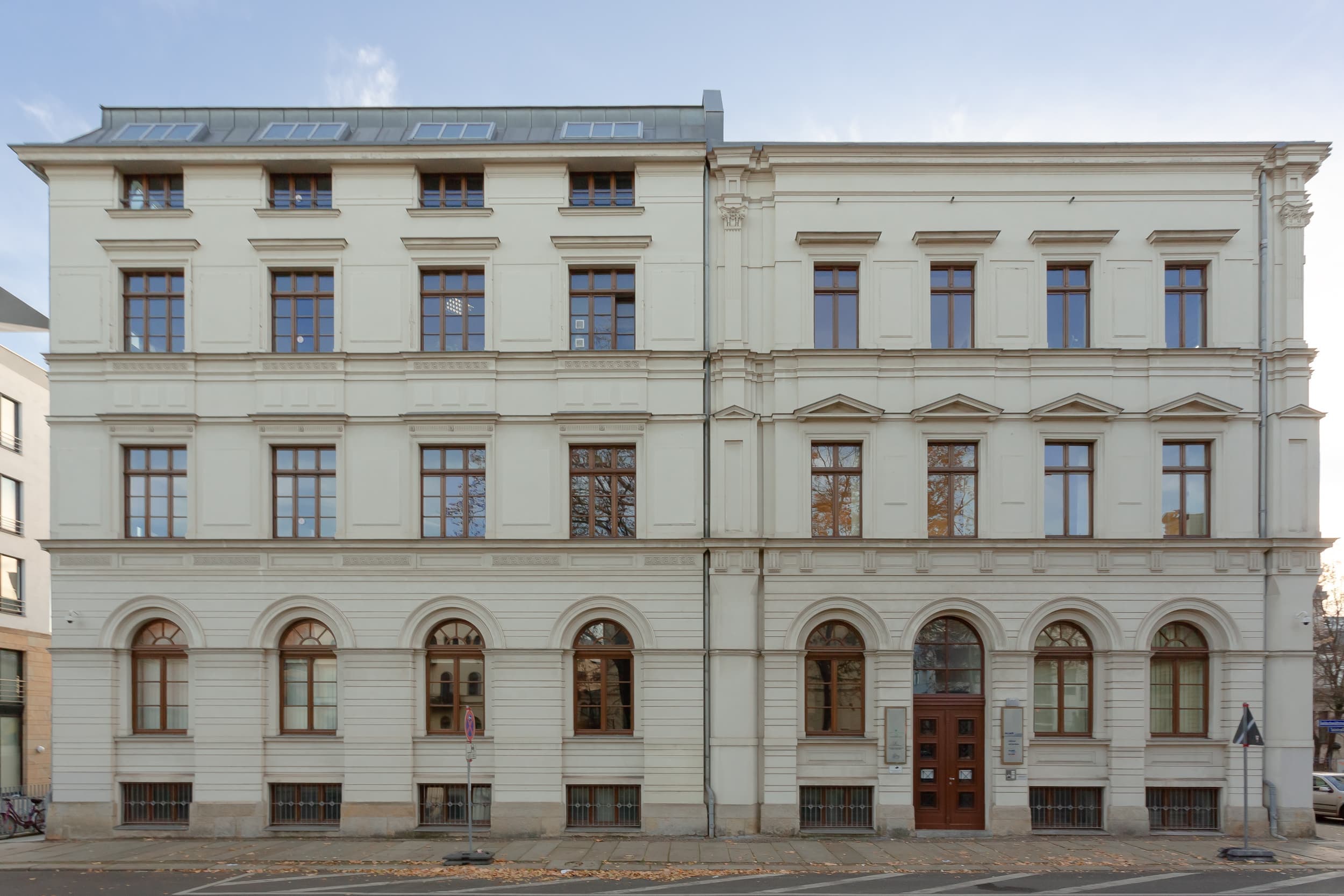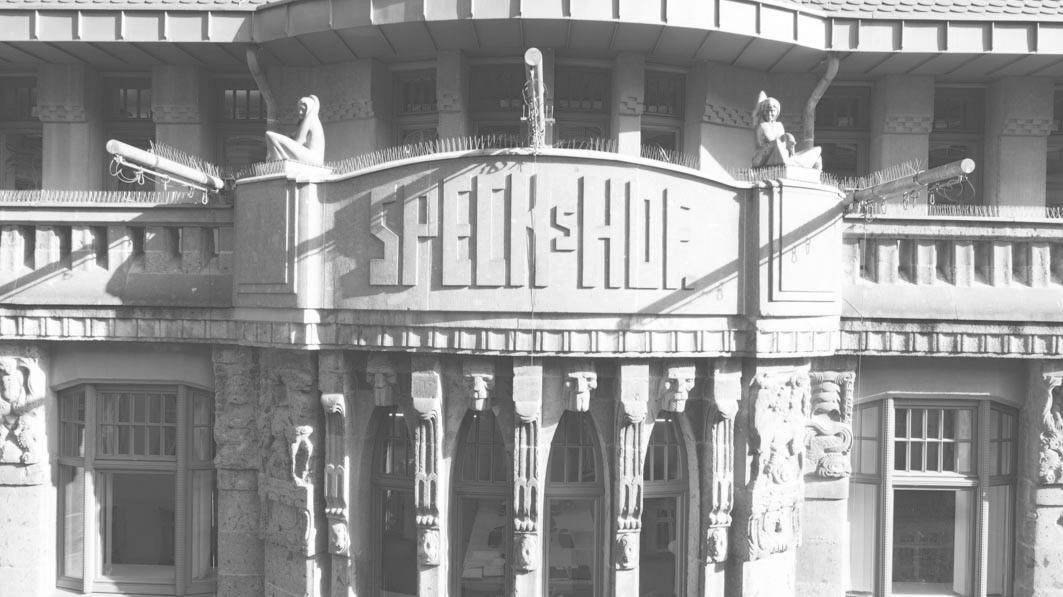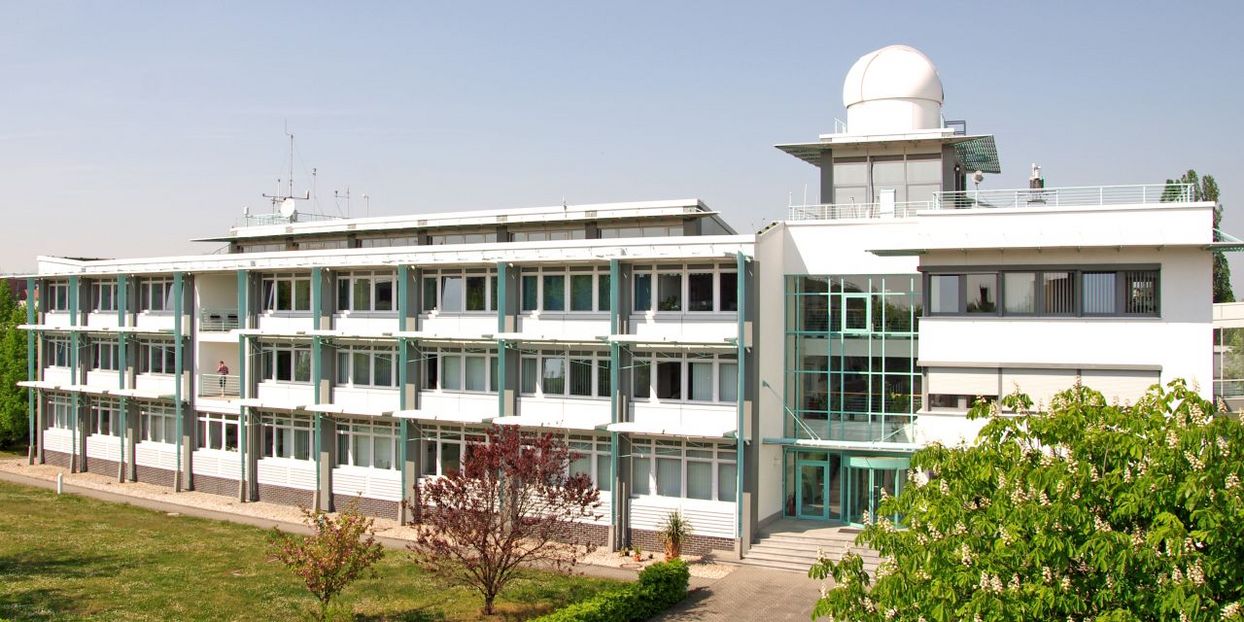Leipzig’s research diversity is reflected in its four Leibniz Institutes. The Leibniz Association, named after the philosopher and mathematician Gottfried Wilhelm Leibniz (1646–1716), a native of Leipzig, is one of Germany’s four non-university research organizations. It connects 96 independent institutes focusing on fields such as natural sciences, engineering, economics, and the humanities. Addressing socially, economically, and ecologically relevant topics, the Leibniz Institutes are jointly funded by federal and state governments due to their national significance.

Dubnow-Institut, Facade of the institute building in the Goldschmidtstraße in Leipzig. Foto: Regentaucher, 2020
Leibniz Institute for Jewish History and Culture – Simon Dubnow
The Leibniz Institute for Jewish History and Culture – Simon Dubnow (DI) conducts multidisciplinary and historically comprehensive research on Jewish life in Central and Eastern Europe from the Middle Ages to the present. Its research adopts a pan-European perspective and includes the spaces of Jewish emigration, particularly Israel, as well as North and Latin America. Through events, university teaching, and a wide range of publications, the research findings are communicated to both academic audiences and the interested public. A stated goal is to conduct high-level humanities research and to enhance societal differentiation and critical thinking through the transfer of knowledge by conveying scientific insights.
read more

Facade of Specks Hof. Leibniz-Institut für Geschichte und Kultur des östlichen Europa (GWZO)
Leibniz Institute for the History and Culture of Eastern Europe
The Leibniz Institute for the History and Culture of Eastern Europe (GWZO) focuses its research on the region between the Baltic Sea, the Black Sea, and the Adriatic. From Late Antiquity to the present, it examines the characteristics, transformations, and interrelationships of this region within an increasingly globalized world. At the GWZO, experts from various humanities disciplines and scholarly traditions collaborate. The institute shares its research findings with specialists and the public through academic and non-academic books, exhibitions, events, and digital knowledge resources. In this way, past and present developments in Eastern Europe are made more comprehensible.
read more
Institute Building. Leibniz-Institut für Länderkunde
Leibniz Institute for Regional Geography
The Leibniz Institute for Regional Geography (IfL) is the only non-university research institute for geography in Germany. The institute’s origins date back to 1896, when the Leipzig Museum of Ethnology displayed the collection of geologist Alphons Stübel, which became an independent Museum of Regional Geography in 1907. The institution flourished, and by the 1930s, the museum had also become a research institute. From 1950 onward, the institute evolved into the central geographic research institute of the GDR. In 1976, it was integrated into the Academy of Sciences of the GDR as the Institute for Geography and Geoecology (IGG). After German reunification, it was re-established as the Institute for Regional Geography. Since 1996, it has been located at its current site in Leipzig-Paunsdorf.
read more

TROPOS main building, Foto: Patric Seifert/TROPOS
Leibniz Institute for Tropospheric Research
The Leibniz Institute for Tropospheric Research (TROPOS) pursues a clear and globally unique research profile, focusing on aerosols, which are tiny airborne particles, and clouds. Although they exist in minimal quantities, aerosols are vital components of the atmosphere, as they play a key role in regulating the Earth’s energy, water, and trace substance balance. Human activities can alter the properties of these highly dispersed systems, directly and indirectly affecting humans. This can happen both through the health impacts of inhaled particles and droplets, as well as through regional and global climate changes.
read more